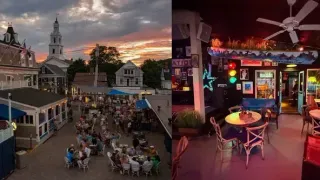August 31, 2017
Disaster Relief Doctor Offers Three Vital Steps For Surviving Natural Disasters Like Hurricane Harvey
READ TIME: 2 MIN.
While the ravages of Hurricane Harvey are still being tallied, victims need to immediately secure safe water, collect clean, dry food, and seek safe shelter.
Dr. Paul Williams, who has led nearly 200 medical missions, frequently into disaster-stricken countries, advises, "In my international relief efforts, people often forget to follow three vital steps that could save their lives."
The author of When All Plans Fail explains, "Safe water is vital. Adults need at least a half-gallon a day, though they can survive three days without water. To purify water, add 8 drops of bleach per gallon of water and let sit for a half hour. Also, pouring water into a clear plastic bottle and exposing it to the sun for six hours purifies it. Always filter the water through a T-shirt or coffee filter first.
"Victims also need to collect clean, dry food. First of all, consume what you can, perhaps perishable items that are still safe. Then look for sealed, pre-packaged products like energy bars or nuts. Ideally, keep all your food products in a sealed container -- like a bucket -- so it can float. And don't forget any necessary medication (Ziploc bags work).
In a pinch, you can use a concave mirror or satellite dish to start a fire or heat food, especially if you line it with tin foil or a space blanket. Be careful, though, because the focal point varies depending on size of the dish.
Last of all, you need to secure safe shelter. With flooding, go to the highest ground possible, which may be the second story of a house. Under no circumstances, though, should you enter an attic where you may have no exit.
If you're in danger of being swept downstream or falling into the water, tie yourself to a solid object. Obviously, use common sense. Before leaving your home, make sure you're wearing gloves and sturdy shoes so you don't injure your hands and feet on debris that could limit your mobility.
Paul R. Williams, MD received his M.D. from Washington University School of Medicine, in St. Louis, Missouri. He taught on the faculty of the University of South Florida College of Medicine for 15 years. In 1997, he founded International HealthCare Network, linking non-profit organizations with humanitarian outreaches.
He has led more than 200 medical trips including disaster relief efforts, in Bangladesh, Indonesia, Haiti, Philippines, and the continent of Africa. He serves on the advisory board of the Austin Disaster Relief Network. In 2015, he was inducted into the University of Toledo Medical Mission Hall of Fame.
He is the author of "When All Plans Fail" (Creation House, 2015) and has appeared on cable television as well as radio stations across the country.






